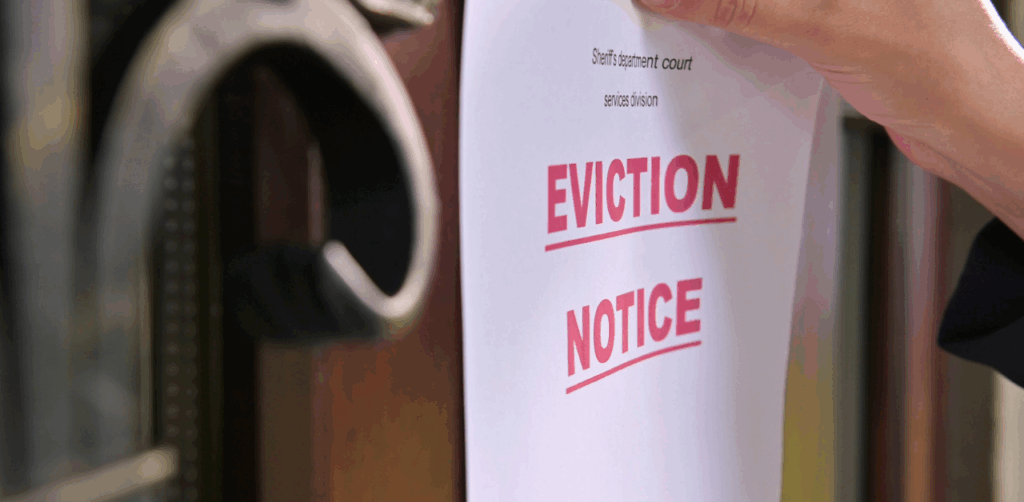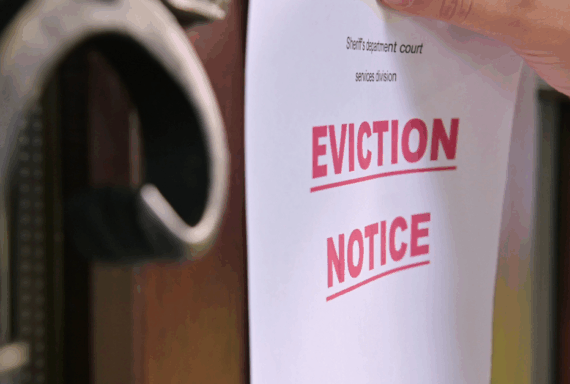
Nevada’s landlord-tenant laws were updated in 2025 to provide clearer guidelines and stronger protections for both renters and property owners. Whether you’re renting for the first time or managing multiple properties, it’s essential to understand your rights and responsibilities under the new rules.
These laws cover everything from rent payments and lease agreements to evictions and tenant protections. There’s also a stronger focus on fair housing practices and maintaining safe, livable properties.
At Faranesh Real Estate and Property Management, we help both landlords and tenants navigate these legal updates with confidence. Whether you’re renting out a home in Las Vegas or staying compliant with statewide housing regulations, our experienced team is here to guide you every step of the way.
In this article, we give you a clear rundown on landlord-tenant laws and detail the rights of every tenant.
Rent Payments, Rent Prices, and Rent Control Policies

Rent payments are the backbone of every rental operation, and Nevada tenant laws 2025 rights and obligations clarify how these transactions must occur. While Nevada does not currently have statewide rent control, certain jurisdictions are exploring measures to cap rent prices—especially in high-demand areas like Las Vegas.
Nevada landlords must provide written notice—usually 45 days—before any rent increase. These increases must be reasonable and non-discriminatory, in compliance with fair housing laws. Charging excessive or unpredictable late fees is prohibited; most cities limit late charges to around 5% of monthly rent.
Tenants are expected to pay rent on time and in full. Repeated failure to do so could lead to eviction proceedings, provided the landlord must give appropriate notice and file through court.
At Faranesh Real Estate and Property Management, we automate rent collection for property owners while offering reminders and flexible payment methods for Nevada tenants. This balance improves cash flow for landlords and promotes stability in the landlord-tenant relationship, reducing the need for legal escalation due to unpaid rent.
Security Deposit Requirements Under Nevada Law
A security deposit is a common part of the rental process, protecting the landlord against damages, lease violations, and unpaid rent. In Nevada, landlords can collect up to three times the monthly rent as a deposit, although most limit it to one or two months.
Under Nevada law, this deposit must be returned within 30 days of lease termination. If deductions are made, a detailed list must be provided. Acceptable deductions include:
- Cleaning costs (beyond normal wear)
- Unpaid utilities
- Repair costs due to tenant negligence
Nevada law requires landlords to keep deposit funds separate and may even mandate that landlords pay interest in certain municipalities. Tenants who believe they’ve been unfairly charged have the right to seek legal assistance or file a small claims case.
Faranesh Real Estate and Property Management ensures that all deposit handling complies with landlord-tenant laws. We protect property owners from claims and make the process transparent for tenants. Our legal team provides the deposit process aligns with federal and state laws, preventing costly errors or lawsuits.
Eviction Proceedings and Lease Termination Rules

Evictions in Nevada must follow a specific and detailed legal process. A landlord cannot evict a tenant without proper written notice and a court-approved eviction proceeding. Valid grounds for eviction include:
- Unpaid rent
- Repeated lease violations
- Refusal to vacate after lease termination.
The timeline for eviction varies. A five-day notice is usually required for non-payment of rent, while a 30-day notice is required for month-to-month lease terminations. If the landlord fails to follow proper legal procedures, the eviction may be dismissed, and the tenant may be entitled to recover their legal fees.
Faranesh Real Estate and Property Management handles eviction compliance for our clients, drafting accurate notices, filing paperwork, and attending hearings when needed. For tenants, we provide resources to help them seek legal advice and understand their rights during eviction proceedings.
The best way to avoid eviction is to maintain clear communication and adhere to the rental agreement. However, if termination is necessary, we ensure it’s done legally and professionally, preserving the landlord-tenant relationship wherever possible.
Tenant Rights, Tenant Protections, and Fair Housing Laws
Nevada tenants enjoy numerous protections under both state law and the federal Fair Housing Act. These include the right to a habitable rental unit, non-discriminatory practices, and access to legal recourse when their rights are violated.
Discrimination based on race, gender, religion, national origin, disability, familial status, or sexual orientation is illegal. Recent updates to Nevada rental laws also offer tenant protections for victims of domestic violence, including early lease termination without penalty.
Tenants may also withhold rent for significant, unaddressed habitability issues, such as non-functioning heat or broken electrical systems. But only after providing proper notice.
At Faranesh Real Estate and Property Management, we provide tenants with legal education and ensure that property owners comply with all fair housing requirements. We also document communications and maintenance requests to prevent misunderstandings.
Landlord Obligations for Property Maintenance and Necessary Repairs

Maintaining a safe and habitable rental property is one of the most important obligations under Nevada landlord-tenant laws. Landlords must address necessary repairs, such as:
- Plumbing issues
- Heating
- Electrical systems
Tenants are responsible for reporting issues promptly and may face lease consequences if they fail to do so. If a landlord fails to act after proper notice, tenants may file legal action, withhold rent, or terminate the lease.
Faranesh Real Estate and Property Management coordinates repairs through a licensed property management company and tracks all requests through a tenant portal. This ensures fast response times and legal protection for both the landlord and tenant. By providing prompt property maintenance, we help preserve property value, reduce vacancies, and maintain strong landlord-tenant relationships.
Mandatory Disclosures and Legal Responsibilities of Nevada Landlords
Under the 2025 updates, Nevada law requires landlords to provide several mandatory landlord disclosures, including:
- Known structural or environmental issues
- Lead paint (for properties built before 1978)
- Rent payment methods
- Entry procedures and contact details
Failing to provide these disclosures can lead to legal disputes, invalidated leases, or fines. These disclosures must be part of the lease agreement and acknowledged in writing.
Faranesh Real Estate and Property Management prepares comprehensive disclosure packets and ensures all legal obligations are met before tenants move in. We also train property owners on disclosure updates to remain compliant with federal and state laws.
Domestic Violence Protections and Seek Legal Assistance Options
Nevada law recognizes that housing can be a matter of safety. Tenant protections allow survivors of domestic violence to terminate a lease early without penalty by providing official documentation such as a restraining order or police report.
Landlords may not deny tenancy or evict someone solely for being a victim. These protections fall under both Nevada rental laws and the federal Fair Housing Act. Violating these can lead to fines, lawsuits, or federal investigations.
Role of Property Management Companies in Legal Compliance
With so many legal updates, many Nevada landlords are turning to professional support. A licensed property management company like our team at Faranesh Real Estate and Property Management provides protection and convenience.
We handle everything from:
- Screening tenants
- Collecting rent payments
- Addressing maintenance requests
- Ensuring compliance with mandatory landlord disclosures
This allows property owners to focus on growing their property value rather than managing every detail of the rental process.
Our property management company also provides legal templates for rental agreements, monitors timelines for lease duration renewals, and intervenes early when we spot lease violations. We also oversee inspections, provide written notice documentation, and respond promptly to issues to prevent them from becoming legal disputes.
Our legal compliance services reduce exposure to fines, lawsuits, or regulatory complaints. More importantly, we uphold best practices in ethical housing, protecting the rights of both landlords and tenants in the process.
What Happens When a Landlord Fails to Comply with the Lease Agreement
NRS 118A.350 outlines the procedures and consequences when a landlord fails to comply with a rental agreement. If the landlord breaches the agreement, the tenant must provide written notice specifying the breach.
The agreement remains valid if the breach is fixable and the landlord remedies it within 14 days. Failure to remedy allows the tenant to terminate the agreement immediately, recover damages, or seek court relief. The tenant cannot terminate due to conditions caused by their actions or those of their household members.
The landlord must return prepaid rent and applicable security deposits if the agreement is terminated. Notice requirements are essential unless the landlord admits to the breach or receives notice from a relevant governmental agency.
Supporting the Landlord-Tenant Relationship with Faranesh
At Faranesh Real Estate and Property Management, we take pride in supporting both property owners and Nevada tenants. Whether you’re dealing with rent payments, unpaid rent, or planning lease renewals, our legal and management expertise ensures you’re always in compliance.
We reduce stress, prevent legal disputes, and manage everything from legal notices to maintenance requests. By maintaining ethical and legally sound landlord-tenant relationships, we help increase profitability, tenant satisfaction, and peace of mind for all.
Let us take the guesswork out of Nevada real estate law. Call us at (702) 536-9000 or fill out our form to make sure your rights are protected and your property is managed professionally.




